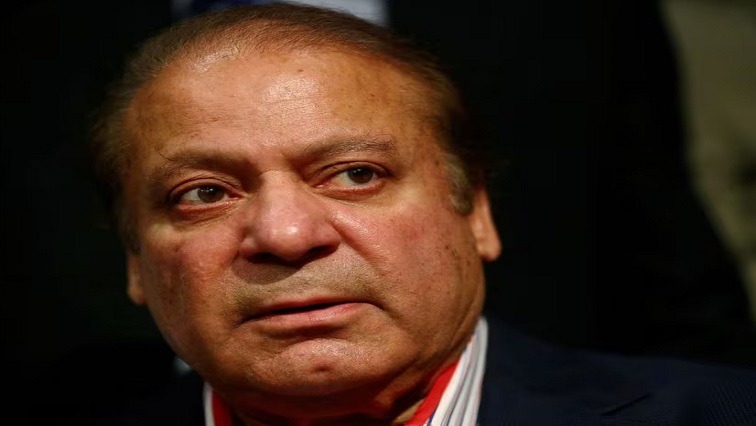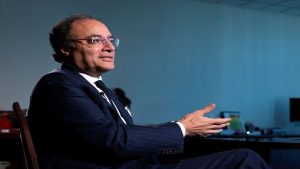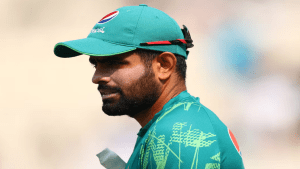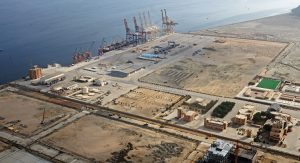Pakistan’s former Prime Minister Nawaz Sharif, whose party is considered a front-runner to win general elections in February, will kick off his campaign next week, aides said, days after the Supreme Court cleared him to run for a fourth term.
The campaign for the February 8 poll, delayed since November, looks set to fire up a lacklustre race in an uncertain political environment after Sharif’s main rival and former Premier, Imran Khan, was jailed and disqualified from contesting.
“We will, God willing, start our mass campaign on January 15,” Pervaiz Rashid, a close Sharif aide told Reuters, adding that the former premier would speak at a rally two days later.
Analysts believe the South Asian nation’s powerful military has thrown its backing to Sharif, 74, after it was locked in a standoff with former cricket star Khan, 71.
That gives Sharif an edge in a country where army generals mostly decide on making or breaking governments.
“Sharif is a front-runner because he and his party are back in the military’s good graces,” said Michael Kugel man, a South Asia specialist at Washington think tank the Wilson Center.
“In the polarised, vendetta-driven environment of Pakistani politics, it is brutally simple: Nawaz is a bitter rival of Imran Khan, and that serves the army well, which turned on Khan and doesn’t want him to return to power.”
The military’s public relations wing did not respond to a request for comment.
Sharif’s party spokesperson, Marriyum Aurangzeb, also did not respond to a question about his ties with the military.
Despite Sharif’s return to Pakistan in October from four years in self-imposed exile, his Pakistan Muslim League-Nawaz (PML-N) had not yet begun its campaign since he faced a lifetime bar from contesting polls.
On Monday, however, the Supreme Court scrapped such lifetime election bans for those with criminal convictions, clearing the way for Sharif to run.
Major players such as the Pakistan Peoples Party (PPP) of late Prime Minister Benazir Bhutto have already begun campaigns, but these have been muted compared to past polls.
The two largest parties, the PML-N and Khan’s Pakistan Tehreek-e-Insaf (PTI), have yet to gear up four weeks ahead of the election.
Bhutto’s son, Bilawal Bhutto Zardari, her party’s candidate for prime minister, pointed to the delay in launching Sharif’s campaign, saying it called into question whether elections would be held at all.
Khan’s PTI, the winner of the 2018 elections, which is known for festive gatherings that draw a good turnout, is grappling with a military-backed crackdown.
Its campaign efforts must also contend with state-backed efforts to block candidates on legal and technical grounds, it said, with its leader in jail.
“We are going through an election where people have no trust, as they know, and they are seeing that the state is blatantly pushing one party against the wall,” said author and political commentator Ayesha Siddiqa.
“We may get some activity, of course, when Sharif gets out and holds rallies.”
Sharif’s key pledge will be to rebuild the $350-billion economy, which is in dire straits, battling high inflation, an unstable currency, and low foreign exchange reserves, despite averting a debt default with an IMF bailout last summer.
“We have delivered on the economic front every time we came to power,” said the aide, Rashid. Previous terms in office saw Sharif favour policies focused on ambitious infrastructure-led economic growth.
Sharif, elected prime minister in 1990, 1997, and 2013, has blamed his 2017 ouster and subsequent corruption convictions on the military, with which he had fallen out. The military denies this.
That fallout is believed to have stemmed from differences over handling relations with arch-rival and neighbour India and his government’s treason trial of a former ruler and army chief, the late General Pervez Mushraff.
Still, Sharif appears to be the only viable option for the generals, said Aqil Shah, an author and specialist in the military politics of Pakistan at the University of Oklahoma.
“The military institution is only concerned with preserving and advancing its hegemonic interests,” he said. “Hence, it has no permanent enemies or friends.”






